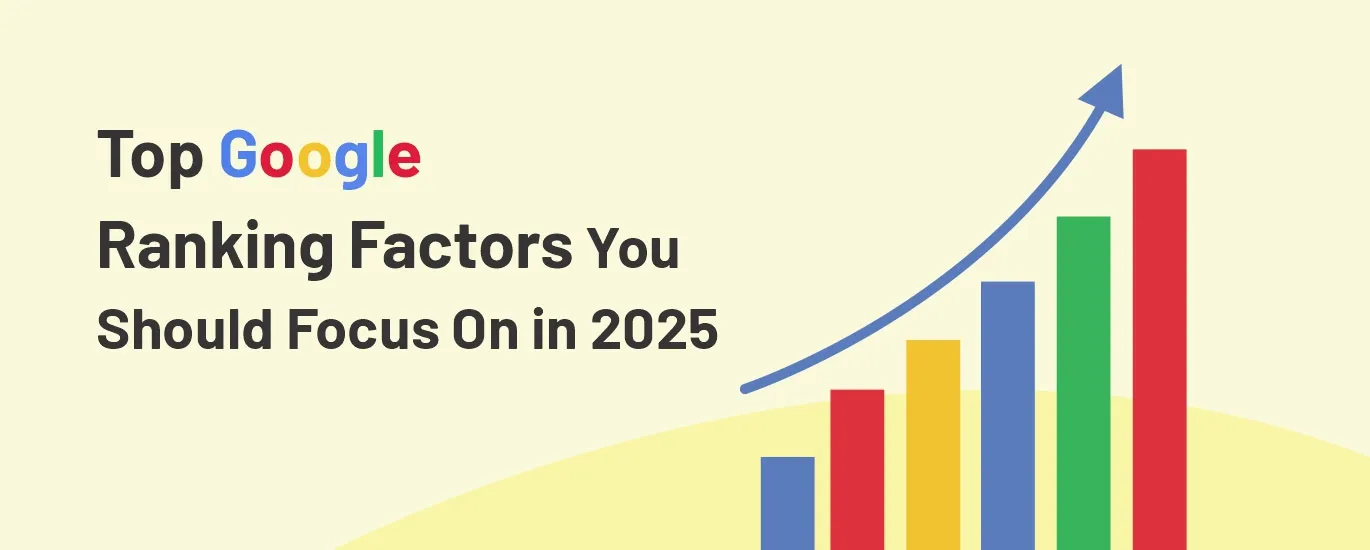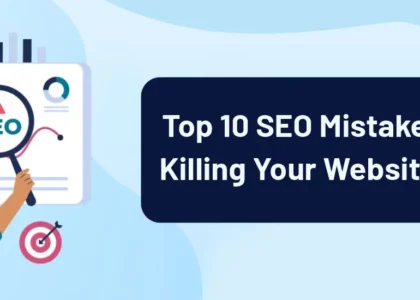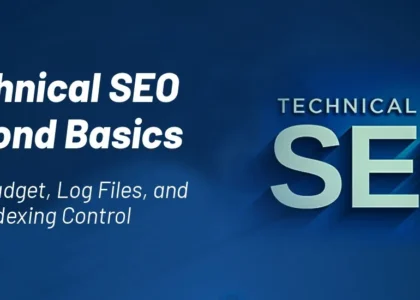If you’re running a business in 2025, there’s one truth you can’t ignore: understanding Google Ranking Factors can make or break your online visibility. But here’s the twist—the rules keep changing. What worked last year might not move the needle today.
This blog is your beginner-friendly, expert-backed guide to what actually matters for SEO in 2025. Whether you’re a small business owner, marketer, or founder, you’ll walk away knowing exactly where to focus your efforts (and what to stop wasting time on).
Why Google’s Ranking Factors Keep Changing
Think of Google like your smartest, most helpful friend always learning, always adapting. Every time it updates its algorithm, it’s trying to do one thing: deliver the most helpful results to searchers.
Over the years, Google’s gone from looking at just keywords and backlinks to deeply understanding content, intent, and user experience. Thanks to AI, it now knows whether your content is actually useful or just fluff.
So if you’re still using outdated tricks from 2015, it’s time to refresh your strategy.
Top Google Ranking Factors in 2025 (That You Shouldn’t Ignore)
1. Write for People, Not Just Algorithms
You’ve heard this before, but it’s more important than ever: Google wants content that helps people. The Helpful Content Update continues to shake up rankings and if your page is written only to “rank,” Google knows.
Here’s the simple rule: if someone reads your content and leaves with more clarity than they had before, you’re doing it right.
Focus on:
- Answering real questions (not just repeating keywords)
- Sharing insights from your own experience
- Writing in plain, human language
Real-world move: Instead of writing “What is SEO?” for the hundredth time, try “How We Increased a Client’s Traffic by 120% Using Only On-Page SEO.” Now that’s useful and unique.
2. Build Real Trust with E-E-A-T
Building real trust through E-E-A-T is one of the most crucial google ranking factors Google doesn’t just want answers it wants answers from people who know what they’re talking about. That’s where E-E-A-T comes in: Experience, Expertise, Authoritativeness, and Trustworthiness.
In other words, prove you’re legit.
Easy ways to boost your credibility:
- Add your name, credentials, and photo to blog posts
- Link to trusted sources (not random low-quality sites)
- Use real stats, results, and examples from your own work
- Make your website look safe and professional (HTTPS, clean design, contact info)
Think of it like this: would you take business advice from a nameless, faceless blog with no sources or proof? Neither would Google.
3. Your Website Shouldn’t Feel Like It’s from 2012
In 2025, page experience matters a lot. If your site loads slowly, jumps around while loading, or feels clunky on mobile users leave. And when they leave fast, your rankings drop.
What to fix first:
- Compress big images (and use modern formats like WebP)
- Minimize annoying popups and layout shifts
- Keep things clean and fast, especially for mobile visitors
Tools like Google’s PageSpeed Insights will show you exactly what needs work.
4. If It’s Not Mobile-First, It’s Invisible
Most searches today start on mobile and Google knows it. That’s why it looks at your mobile version first when deciding where to rank your pages.
Make sure your mobile site:
- Loads fast (even on slow networks)
- Looks great on small screens
- Has text that’s easy to read and buttons that are easy to tap
Quick test: Pull up your site on your phone right now. Would you stick around if you were a new visitor? If not, time to fix that.
5. Don’t Just Use Keywords Build Topics
Gone are the days of repeating the same phrase over and over. Google’s smarter now. It understands topics, not just words.
So instead of obsessing over one keyword, create clusters of content that explore a topic deeply.
Here’s what that looks like:
- A pillar page like “Beginner’s Guide to Digital Marketing”
- Linked blog posts covering things like SEO, Google Ads, Social Media, Email Campaigns, etc.
- Natural use of related phrases, FAQs, and semantically linked terms
You’re not writing for bots anymore. You’re building a knowledge base and Google rewards that.
6. Get the Right Kind of Backlinks
Backlinks still matter but the game has changed. Google cares more about where your links come from than how many you have.
What helps:
- Links from respected websites in your industry
- Getting featured on podcasts, news sites, or relevant blogs
- Creating resources (like tools, research, or guides) that people naturally want to link to
What hurts:
- Buying spammy links
- Submitting to random directories with no real traffic
- Using link schemes or private blog networks (PBNs)
Want backlinks? Focus on building things people find useful and they’ll come naturally.
7. Keep Visitors Engaged, Not Just Clicking
In 2025, it’s not just about getting people to your site it’s about making them want to stay.
If someone clicks your link and leaves within seconds, Google notices. But if they explore your content, watch a video, or click to another page? That’s a great sign.
So, how do you keep them around?
- Make your content easy to skim with subheadings and bullets
- Add visuals: charts, screenshots, short videos
- Use internal links to guide them deeper into your site
Bottom line: engaged users signal valuable content and valuable content ranks.
8. Stand Out with Structured Data
You’ve probably seen those search results with star ratings, product info, or FAQs right in the listing. That’s rich results and they’re powered by structured data (also known as schema markup).
Adding schema helps Google understand your content better and display it more prominently.
Use schema for:
- Blog posts (FAQ, How-To)
- Product pages
- Reviews or events
Tools like Google’s Rich Results Test can help you get started.
How AI Is Shaping SEO in 2025
Artificial Intelligence isn’t just part of Google’s algorithm it’s becoming the lens through which all content is filtered.
With features like Search Generative Experience (SGE), AI now helps users get summarized answers right on the SERP. That means your content must be:
- Well-structured so it’s easy for AI to extract insights
- Genuinely helpful (not surface-level filler)
- Backed by experience or authority
In short: Google’s AI will reward content that sounds human, solves problems, and demonstrates expertise.
SEO Best Practices for 2025 (The Do’s & Don’ts)
Do:
- Keep content original, useful, and easy to read
- Optimize for mobile, voice, and visual search
- Use internal links naturally
- Refresh old content with new data
- Keep a clean site structure and fast load speed
Don’t:
- Stuff keywords unnaturally
- Rely on AI to write without human edits
- Buy backlinks or use shady SEO shortcuts
- Ignore your analytics
- Create content with no clear intent
Final Thoughts
SEO in 2025 is less about gaming the algorithm and more about aligning with what users (and Google) actually value: useful content, smooth experiences, and trustworthy sources.
If you focus on these proven ranking factors, you’ll set your site up not just for more traffic but for the right kind of traffic.
Let Arrowpace Help You Win the SEO Game
At Arrowpace, we blend data, strategy, and creativity to help businesses like yours rank higher and grow faster. Our SEO services in India are tailored to meet the latest Google standards including AI-readiness, content optimization, and technical performance.
Want to stop guessing and start ranking? Let’s make it happen.
Explore our SEO services or get in touch today.





